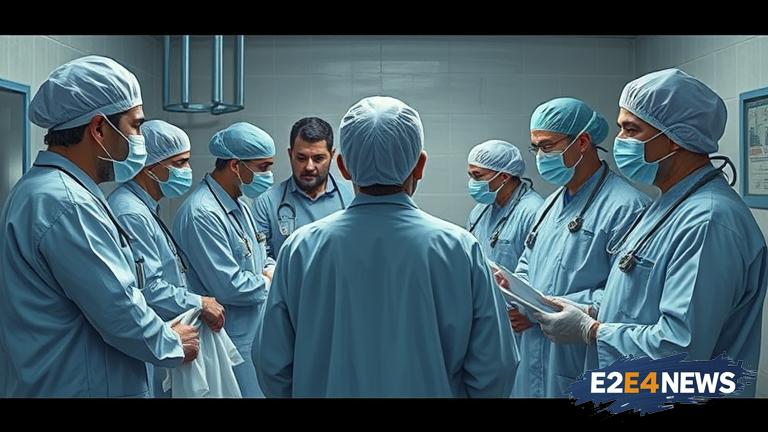Iran’s healthcare system is on the verge of collapse due to a severe shortage of medical professionals, including doctors and nurses. The country is facing a significant brain drain, with many of its top medical professionals leaving to work in other countries. This has resulted in a severe shortage of skilled medical staff, putting a huge strain on the healthcare system. The shortage of doctors and nurses has led to a decline in the quality of healthcare services, with many hospitals and clinics struggling to provide even basic medical care. The situation is particularly dire in rural areas, where access to medical care is already limited. The Iranian government has been criticized for its handling of the crisis, with many accusing it of failing to invest sufficient funds in the healthcare system. The shortage of medical professionals has also led to a significant increase in waiting times for patients, with many being forced to wait for hours or even days to receive treatment. The crisis has also had a significant impact on the country’s economy, with many businesses and industries being affected by the lack of access to quality healthcare. The Iranian government has announced plans to increase funding for the healthcare system and to recruit more medical professionals, but many are skeptical about the effectiveness of these measures. The crisis has also highlighted the need for significant reforms in the healthcare system, including the introduction of new training programs for medical professionals and the development of more effective management systems. Despite the challenges, many Iranian medical professionals are working tirelessly to provide quality care to their patients, often in difficult and challenging circumstances. The international community has also been called upon to provide support and assistance to help address the crisis. The situation in Iran is a stark reminder of the importance of investing in healthcare systems and the need for governments to prioritize the health and wellbeing of their citizens. The crisis has also had a significant impact on the country’s most vulnerable populations, including the elderly and young children. Many of these individuals are being forced to go without essential medical care, putting their lives at risk. The Iranian government has been accused of failing to protect the rights of its citizens, including their right to access quality healthcare. The crisis has also led to a significant increase in medical errors, with many patients being misdiagnosed or receiving inadequate treatment. The situation is a major concern for the international community, with many calling for urgent action to be taken to address the crisis. The Iranian government must take immediate action to address the shortage of medical professionals and to invest in the healthcare system. This includes increasing funding, recruiting more medical professionals, and introducing new training programs. The international community must also provide support and assistance to help address the crisis. The situation in Iran is a stark reminder of the importance of prioritizing healthcare and the need for governments to invest in their healthcare systems. The crisis has also highlighted the need for significant reforms in the healthcare system, including the introduction of new management systems and the development of more effective training programs. The Iranian government must take a comprehensive approach to addressing the crisis, including investing in the healthcare system, recruiting more medical professionals, and introducing new reforms. The situation is a major concern for the international community, and urgent action must be taken to address the crisis.
